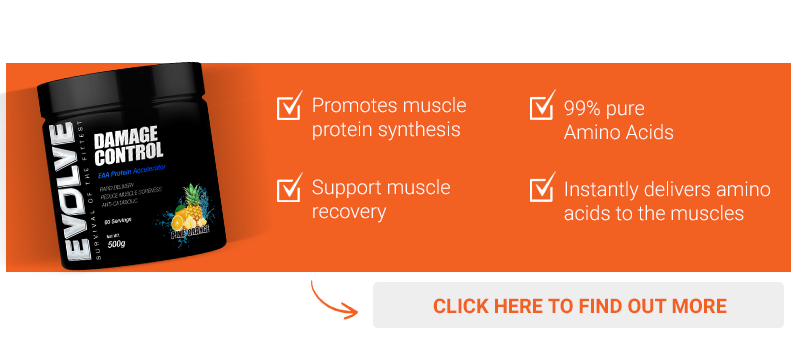Have you ever started a fitness journey and started to see some incredible results, only to hit a harsh plateau with no explanation? Or perhaps you’ve made all the changes required to prime your body for weight loss, yet no results? Believe it or not, your hormones play a significant role in either supporting and accelerating your goals, or hindering them. And the latter is much more common than you may realise.
So, the question must be asked: How much do you really understand about your hormones? What they do and how they influence your metabolism? The role they play in progressing or stunting your fat loss or muscle growth? Let’s be honest, the answer is most likely very few of us. So, let’s take a closer look at three key hormones that affect both men and women: Cortisol, Human Growth Hormone, and Thyroid Hormones.
But first, what on earth are hormones? According to the Hormone Health Network, hormones are chemical substances that act as messengers to signal reactions within your body to carry out functions to cells and/or tissues. As such, hormones impact many different processes in your body, including growth, metabolism, sexual function, reproduction and mood.
Cortisol
You don’t have to be a hormone expert to have heard of the word ‘cortisol’. Whether it’s through Facebook or media publications, ‘stress’ has become the hottest buzzword of this decade, and for a legitimate reason. Did you know – According to the World Health Organisation, stress is the health epidemic of the 21st century!
Yet, despite the negative rap it gets, cortisol is extremely important to survival and is certainly not as bad as it’s made out to be. Wondering why? Cortisol is essentially nature’s built-in alarm system and is best known for controlling your body’s fight or flight instinct. Cortisol works with parts of your brain to influence your mood, motivation, and fear.
But, what exactly is cortisol? Cortisol is a hormone (also known as the stress hormone), which is generally released during times of stress. However, cortisol is not only known for stress. As most of the cells in your body have cortisol receptors, it plays an important role in various functions (You and Your Hormones, 2019). As such, cortisol helps to:
- Regulate your metabolism
- Influence memory formation
- Act as an anti-inflammatory
- Control salt and water balance
- Support the growth of a foetus during pregnancy
How does Cortisol work?
Your hypothalamus and pituitary gland (which are both located in your brain) can detect if the correct level of cortisol is in your brain. If the level is too high or low, your brain will generally make adjustments to the number of hormones it’s producing. As a result, your adrenal glands adapt and adjust the amount of cortisol they release, accordingly.
Likewise, your cortisol receptors may have different hormone requirements each day, meaning what and how they receive these hormones may vary daily. For example – If your body is highly stressed or perceives a threat, cortisol may adjust or stop other functions that interfere, such as your digestive or reproductive systems, your immune system, or even your growth processes.
What happens when you produce too much or too little Cortisol?
If your body is producing too much cortisol, you may experience the following symptoms¹:
- Chronic conditions – ie high blood pressure, type 2 diabetes, and osteoporosis
- Weight gain (particularly around the face and abdomen) – Cortisol increases appetite and sends signals to the body to store fat.
- Mood swings – Generally shown as anxiety, depression or irritability
- Impaired brain function – Cortisol interferes with memory, resulting in brain fog
- Infections – When cortisol is high, it can impact and compromise your immune system, which makes you more susceptible to infection and illness.
If your body’s producing too little cortisol, you may experience the following symptoms:
- Ongoing tiredness
- Dizziness
- Weight loss
- Weakened muscles
- Mood changes
Note: Without treatment, having too much or too little cortisol are potentially life-threatening conditions and should be treated immediately. If you suspect you fall into either of these categories, we urge you to seek medical attention.
Human Growth Hormone
Human Growth Hormone (HGH) is a small protein produced in part of the brain (known as the ‘pituitary gland’) every few hours and more frequently during sleep, particularly our non-REM sleep (Better Health Channel 2019). HGH is responsible for stimulating growth by travelling to all tissues in the body via the bloodstream.
But, how important is HGH? Well, to put it straight – A lack of HGH is suggested to cause slower growth in children and also hinder health and fitness progress for adults (Health Direct 2018). In fact, did you know that growth hormone plays an important role in influencing your height, and helping build your bones and muscles? When secreted, HGH is responsible for stimulating smaller protein hormones that help the following actions and reactions occur in the body:
- The growth and/or maintenance of muscle and bone
- Enhanced tissue repair and skin/injury healing
- The breakdown of fatty acids in the adipose tissue to be used for ATP production
- The regulation of glucose to be used as energy and reserved for times of shortage
There’s no denying that HGH is vital to your overall health and day-to-day functionality, and when it comes to reaching your health and fitness goals, it can either progress your results or hinder them. For instance, according to Better Health Channel, those with growth hormone deficiency may experience a variety of symptoms, including poor bone density, reduced muscle mass, fatigue, depression, poor memory, and increased body fat around the waist.
What can you do to promote the secretion of HGH? Try incorporating the following tips:
- Get serious about your sleep – Non-rapid eye movement sleep, more commonly known as deep sleep, is important for secreting healthy levels of HGH. Try aim for 6-9 hours of sleep per night, if possible.
- Prioritise exercise and lower stress – Try to minimise the amount of stress in your life, and incorporate more exercise to maintain healthy HGH levels (but not too much).
- Keep an eye on other hormones – Other hormones may also play a role in stimulating HGH levels, including insulin, oestrogen, and cortisol. We recommend that you consult your health professional to assess your hormones, should you have concerns or queries.
Additionally, it’s important to be aware that sleep deprivation, a lack of protein and amino acids, an unhealthy amount of fatty acids in your diet, hypothyroidism and obesity can also decrease the production of HGH in your body.
If you’re looking for a fantastic amino acid supplement to enhance your intake of aminos, our go-to is Evolve Damage Control. Whether you want to boost muscle protein synthesis and prevent muscle breakdown or accelerate recovery and enhance performance, Damage Control contains the innovative PeptoPro formula and world-renowned Ajinomoto Aminos to bring you the ultimate full-spectrum EAA protein accelerator.
T4/T3 (Thyroid Hormones)
Ever heard of Triiodothyronine and Thyroxine? Despite what looks like random letters jumbled together, these two words are also known as T3 and T4 and are referred to as your thyroid hormones. Let’s take a closer look at how T3 and T4 work and how they can impact your results!
But first, what are they? To understand what T3 and T4 are, it’s important to first understand what the thyroid gland is. The thyroid gland is a small gland located in the front of your neck that is primarily responsible for taking iodine (which is found in various food sources) and converting it into the thyroid hormones: T4 and T3.
Once released into the bloodstream and transported throughout the body, T3 and T4 regulate and operate your metabolism, which as we know, is essentially the conversion of nutrients into energy. Every cell in the body relies on thyroid hormones to regulate their metabolism. As such, ensuring a healthy balance is of utmost importance (Sargis 2018).
Hyperthyroidism – Hyperthyroidism is a condition whereby your thyroid gland produces too much T3 and T4, resulting in your metabolism working too fast, and thus, converting your nutrients into energy too fast. According to the Better Health Channel, hyperthyroidism can result in:
- Excessive weight loss
- Muscle depletion
- Sensitivity to heat
- Hair loss
- Anxiety
- Irregular menstrual cycle for women
Hypothyroidism – Hypothyroidism, on the other hand, is much more common and essentially means your body isn’t producing enough T3 and T4, for various reasons (including iodine deficiency, or potentially an autoimmune disease). According to Healthy WA, Hypothyroidism can potentially result in the following symptoms:
- Unexplainable weight gain
- Fluid retention
- Depression
- Fatigue
- Constipation
So, how can you help maintain the right T3 and T4 balance? Well, this is certainly a question for your health professional, as every person is unique and requires unique care. However, if your iodine levels are too low, that’s a great place to start. Try incorporating the following iodine-rich foods into your diet:
- Tuna and salmon
- Oysters and other shellfish
- Eggs
- Sea vegetables like seaweed, nori, kelp, etc.
Let’s recap
From unexplainable weight loss and weight gain, depression, ongoing fatigue, reduced muscle mass, poor memory and more, there’s no denying that a hormonal imbalance can have a detrimental impact on your ability to lose weight, gain muscle, muster up the motivation to make health a priority, and ultimately, reach your goals.
As hormones are vital to memory formation, muscle and bone growth, metabolism, tissue repair and more, it’s no secret that maintaining the right balance of hormones is the key to optimal health, functionality, and results. Just remember, everything we do affects our hormones, which in turn, affects everything we do. So, how much do you really know about your hormones? If you feel you may be struggling with any of the symptoms above, put your health first and visit your local healthcare professional for a checkup!
References:
Better Health Channel 2018, Growth Hormone, Better Health Vic, viewed 9 September 2019, <https://www.betterhealth.vic.gov.au/health/conditionsandtreatments/growth-hormone>
Better Health Channel 2011, Thyroid – Hyperthyroidism, Better Health Channel, viewed on September 11 2019, <https://www.betterhealth.vic.gov.au/health/conditionsandtreatments/thyroid-hyperthyroidism>
Health Direct 2018, Human Growth Hormone, Health Direct, viewed on 6 September 2019,<https://www.healthdirect.gov.au/human-growth-hormone>
Hormone Health Network 2019, Your Health and Hormones, viewed 9 September 2019, <https://www.hormone.org/your-health-and-hormones>
Sargis, R 2018, How Your Thyroid Works, Endocrineweb, viewed on 10 September 2019, <https://www.healthcentral.com/condition/thyroid/how-your-thyroid-works?legacy=ew>
¹ Thorpe, M 2017, 11 Natural Ways to Lower Your Cortisol Levels, Healthline, viewed on 10 September 2019, <https://www.healthline.com/nutrition/ways-to-lower-cortisol#section1>
You and Your Hormones 2019, Cortisol, viewed 6 September 2019, <https://www.yourhormones.info/hormones/cortisol/>





